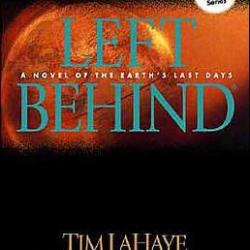• Christina Tkacik and Meredith Cohn of the Baltimore Banner on how “A Baltimore grocery store held the answer” to what caused the recent listeria outbreak and recall.
Food safety is something Americans take for granted. Even “small-government conservative” Americans just expect that the food they buy at the supermarket isn’t going to kill them, even though every vote they cast undermines the funding and the capacity our food-safety systems have to make sure that’s true. This story offers a look at the actual work this takes — both high-tech science and shoe-leather detective work.
I like eating and not getting sick, so here’s a big Thank You to all of the people in that article doing that work.

• Norma Padgett is dead. I didn’t know who that was until Charles Kuffner linked to this 2017 story from the Marshall Project by Gilbert King: “Sixty-eight Years Later, Apologies in Lake County.”
This is the story of false accusations, lynching, murder, and the brazen theft of a Black family’s land through violence, lies, and corruption. This is history, but it’s also living memory.
• I love me a good obsessive deep-dive, and here’s one from Laura Robinson, “Every Source for The Chosen’s ‘Anointing the Passover Lamb’ Goes Back to the Same Person.”
The Chosen is a streaming series about the life of Jesus. It recently included a weird pulpit-glurge urban legend about how a gospel passage echoes something from the Hebrew scriptures even though that something is nowhere to be found anywhere in the Bible. So where did this urban legend originate? And how did this nonsense wind up in the show? Robinson investigates that, tenaciously, and offers a plausible hypothesis, but the specific answers to this specific question all offer a lot to think about in terms of the personalities and perverse incentives that produce this sort of thing more generally.
• I’ve got family in Caledonia County and have spent enough time with them up there to think that Erin O’Farrell’s “Rethinking Rural Resilience in Vermont’s Northeast Kingdom” captures many of the virtues and vices of that region.
This identity of resilient rural people who make do with what they have reinforces cycles of poverty and hardship in places like the Kingdom. As scholars like Maxwell Woods argue, the label of resiliency can lead to negative impacts on a population. Defining a group as resilient has historically allowed policymakers to justify focusing on persevering through hard times instead of preventing those hardships in the first place.
One theme O’Farrell stresses is the difference between an ethos of community resilience and an ethos of individual resilience. The former works. The latter is, literally, unhelpful and helpless — and that’s true anywhere, not just in the Northeast Kingdom..
• Since it’s August, it’s a good time to re-read Al Aronowitz’s “August Blues.” Or you can just press play below and let Little Steven read it for you.
• Roundin’ third and headed for home, it’s a brown-eyed handsome man …
In 1996, during a game at Durham Athletic Park, Glanville stole second base, then ripped the bag from the infield and held it over his head. His teammates were bewildered. Between innings, he explained the stolen base was the 500th of his career, counting his first in his New Jersey town 20-some years before, according to his notebooks. They joined the celebration.
Glanville there is Kenny Glanville, older brother of former big-leaguer Doug Glanville. Doug retired in 2004 after nine years in the majors. Kenny is 61 now, and still playing ball wherever and whenever he gets the chance.
Tim Brown’s “The Timeless Boyhood of a Baseball Lifer” is a joyous, lovely story and piece of writing. It’ll have you singing “Put me in coach, I’m ready to play …”
• The link above is from The Assembly, an ambitious North Carolina publication hoping to create “new models for state level news.” I’m not from North Carolina, but I’ve become a big fan of this site, which is a treasure trove of great writing and great reporting.
Consider, for example, this ultra-local piece on small-town politics in Summerfield, N.C., “A Town’s Entire Staff Resigned. What Happens Now?” You don’t have to be from Summerfield to get sucked into that story or to admire Ren Larson’s writing and reporting of it. Or consider Emily Cataneo’s recent pieces on Bigfoot hunters in North Carolina (“Yeti Or Not, Here They Come“) and an iconic tourist trap (“How South of the Border Keeps Going After All These Years“). Read John Railey’s efforts to make amends for his role in a miscarriage of justice (“Confessions of a Journalist“). Check out Hanna Raskin’s multifaceted look at the change of ownership for a beloved local eatery (“An Alamance Hot Dog Legend At a Crossroads“). Or Ian McDowell’s reporting on the circus-like atmosphere around policing massage parlors in Greensboro (“Parlor Tricks“).
The Assembly has range. Whether or not you live anywhere near North Carolina, you should bookmark the site, subscribe to their RSS feed, follow their social media streams, etc.
















